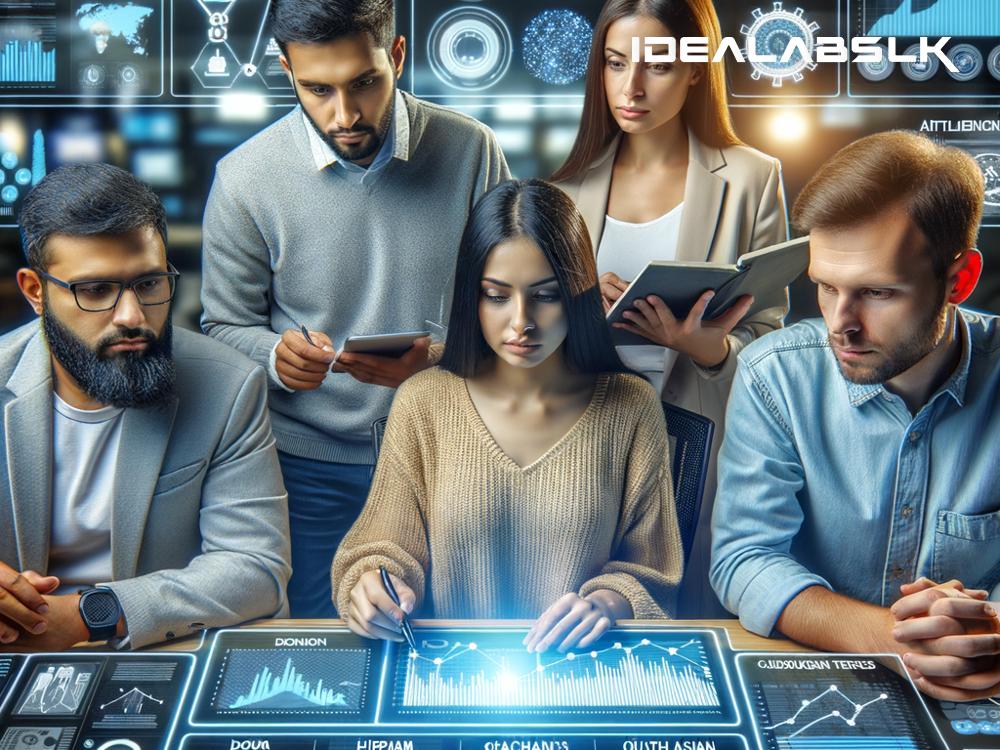In today’s fast-paced digital world, businesses are constantly searching for effective ways to reach their target audience and make a lasting impression. Enter Artificial Intelligence (AI)—a game-changer in the realm of digital marketing. AI is not just a tech buzzword; it's transforming how companies create more personalized experiences for their customers. Let’s dive into how AI is optimizing personalization in digital marketing campaigns and why it’s making such a significant impact.
The Shift Towards Personalization
Remember when ads were one-size-fits-all? Those days are long gone. In an era where our inboxes and social feeds are flooded with content, generic marketing messages no longer cut it. Today’s consumers expect personalization. They want to feel understood and valued by the brands they engage with. This is where AI steps in, turning what might seem like a marketing mammoth of a task into something more manageable and effective.
Understanding AI in Digital Marketing
At its core, AI involves machines or software mimicking human intelligence to perform tasks and improve themselves based on the information they collect. In digital marketing, AI can analyze data, predict trends, and make decisions—all in real-time. But how exactly does this revolutionize personalization? Let’s break it down.
Data Analysis and Insight Generation
Imagine trying to sift through the ocean of data generated every day by your prospective customers. It's not just time-consuming; it's an exhaustive effort with a high margin for error. AI excels at analyzing vast amounts of data quickly and accurately. It can identify patterns in consumer behavior, preferences, and engagement that might take a human marketer months or even years to uncover. This means AI can help businesses understand their audience on a deeper level, paving the way for more personalized marketing strategies.
Predictive Personalization
One of the most futuristic aspects of AI in digital marketing is its ability to predict what a customer might want or do next based on their past behavior and interactions. This is known as predictive personalization. By harnessing the power of AI, marketers can anticipate a customer's needs and tailor their messaging accordingly. For instance, if AI detects that a customer frequently purchases eco-friendly products, the business can personalize their marketing to highlight their sustainability efforts or recommend similar products.
Dynamic Content Creation
Creating content that resonates with each customer can be a daunting task. Luckily, AI can automate this process to an extent by generating dynamic content. This means the content a person sees is based on their individual preferences, behavior, or real-time interactions with a brand. Whether it's emails, product recommendations, or ads, AI ensures that the content not only aligns with the customer’s interests but also their current stage in the buyer’s journey.
Chatbots and Personalized Customer Service
Chatbots are perhaps one of the most visible examples of AI in action today. These virtual assistants use AI to provide personalized responses to customer inquiries in real-time. Chatbots can handle a range of tasks, from answering frequently asked questions to guiding users through a purchase process. This not only enhances the customer experience by providing instant support but also collects data on customer preferences and issues, which can be used to further personalize future interactions.
Real-Time Personalization
Lastly, AI enables real-time personalization. This means marketing messages can be tweaked on the fly based on a user's immediate actions or recent interactions with a brand. For example, if a customer abandons their shopping cart, AI can trigger a personalized reminder or offer a special deal to encourage them to complete their purchase. This level of agility in personalization was nearly impossible to achieve at scale before the advent of AI.
The Future of Personalized Marketing
As AI technology continues to evolve, the possibilities for personalized marketing are bound to expand. We're already seeing trends like voice search optimization and AI-generated content start to take off, indicating that the future of digital marketing lies in personalization powered by AI.
Conclusion
The integration of AI in digital marketing represents a significant shift in how businesses approach customer engagement. By leveraging AI to deeply understand and predict customer behavior, generate dynamic content, offer personalized customer service, and execute real-time personalization, brands can create more meaningful and impactful connections with their audience. As we move forward, the role of AI in optimizing personalization will only grow, making it an indispensable tool in the digital marketer’s arsenal.

